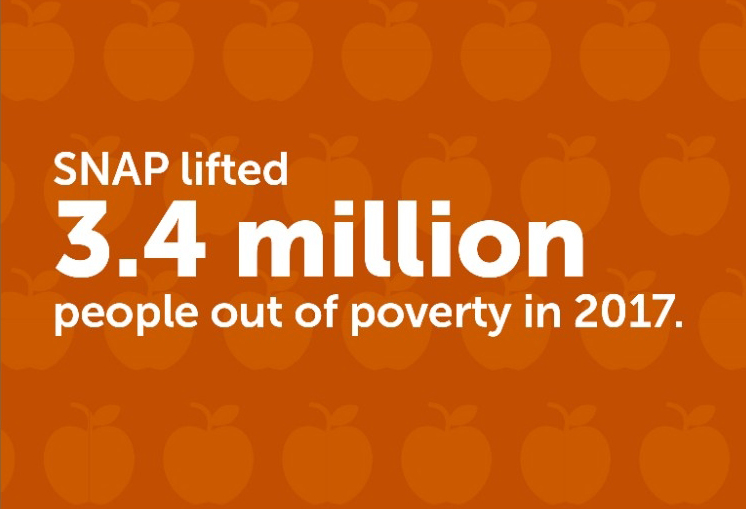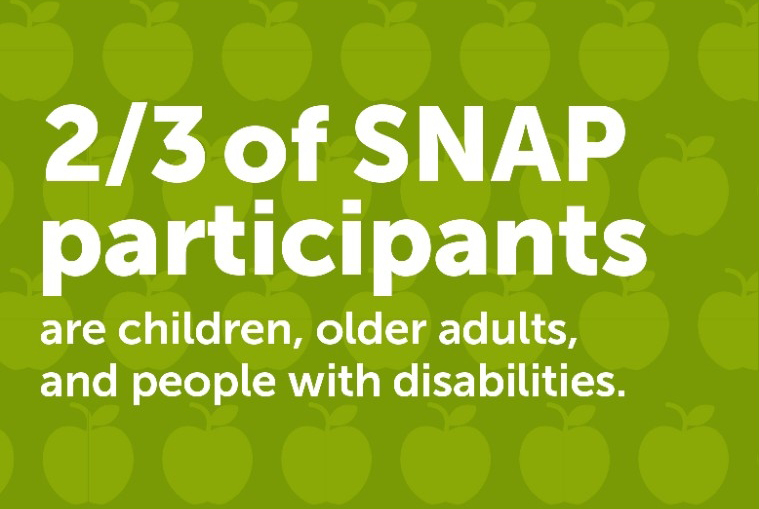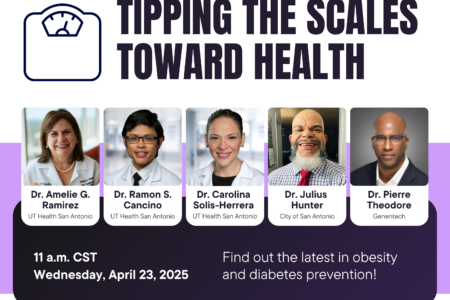
Share On Social!
The SNAP federal food assistance program is at risk again, and YOU CAN HELP!
The Trump Administration wants to cut SNAP and could abolish food aid to 750,000 Americans who are underemployed and unemployed. This could fuel hunger and poverty among those most vulnerable, says the Food Research & Action Center.
SNAP cuts would hurt Latinos, who are already less likely to seek nutrition help for fear of immigration penalties.
You can make a public comment to USDA on SNAP until April 2, 2019.
How to Submit a Comment to Save SNAP!
1. Copy one of our Salud America! model comments. Tweak the parts in green:
SNAP HAS VALUE
I am a NAMEOFPROFESSION in NAMEOFPLACE. I really value the SNAP program in my community. SNAP is proven to improve the economy, according to a Salud America! Research Review. Based on USDA Economic Research Service analysis, it is estimated that each $1 in federal SNAP benefits produces $1.79 in economic activity. Those dollars help many food retailers functioning on thin margins to stay in business; something that improves food access for Latino and all people. ADD A PERSONAL STORY.
SNAP HELPS FAMILIES
Families in NAMEOFPLACE need SNAP. ADD A PERSONAL STORY. The program is vital to lift millions out of poverty, according to a Salud America! report. SNAP is a critical part in tackling hunger and food insecurity in our community. It is the first line of protection against hunger for low-income citizens, communities of color, including Latinos, and all vulnerable people.
SNAP CUTS WOULD HARM PEOPLE
Any modifications to SNAP should expand access to affordable, nutritious food, particularly for the most vulnerable in NAMEOFPLACE. This proposed cuts to SNAP appear inequitable, according to reports by the Food Action & Research Center and Salud America!. It damages susceptible populations, including Latinos and other minority groups, by blocking food benefits at a time when they most need it. The cuts do not result in increased employment nor improved earnings. By time-limiting SNAP, federal law has transferred the problem of providing food to these unemployed individuals from SNAP to states, cities, and local charities. ADD A PERSONAL STORY.
2. Paste your comment at regulations.gov.
3. Add your info.
4. Submit!
Why Is SNAP in Danger?
We will be monitoring public comments submitting and reporting back the results.
SNAP (Supplemental Nutritional Assistance Program) is in danger. The Trump Administration wants to make cuts.
 These cuts, according to FRAC, would:
These cuts, according to FRAC, would:
- Cause serious harm to individuals, communities, and the nation.
- Fuel rates of hunger and poverty by denying vulnerable people nutrition assistance at a time when they most need it.
- Do nothing to improve the health and employment of those impacted by the proposed rule.
- Harm the economy, grocery retailers, and agricultural producers by reducing the amount of SNAP dollars available to spur local economic activity.
- Sidestep Congress, which rejected these changes when it enacted the 2018 Farm Bill.
Why is SNAP Important?
The majority of SNAP recipients are children, seniors, and persons with a disability.
SNAP helps alleviate hunger and poverty, in which the program lifted 3.4 million people out of poverty in 2017.
For workers who earn a low wage and who can’t find steady work, SNAP helps to buy food.
“Taking essential benefits like food benefits away from those who are unemployed wouldn’t address the inequities in the labor market or the challenges that so many workers face” wrote Ed Bolen, Senior Policy Analyst at the Center on Budget and Policy Priorities.
“Instead of punishing struggling workers, policymakers should support them through ideas with bipartisan support, such as a higher minimum wage, a stronger Earned Income Tax Credit, and paid family leave.”
Check out these SNAP stories of how the program has benefited families.
By The Numbers
142
Percent
Expected rise in Latino cancer cases in coming years



